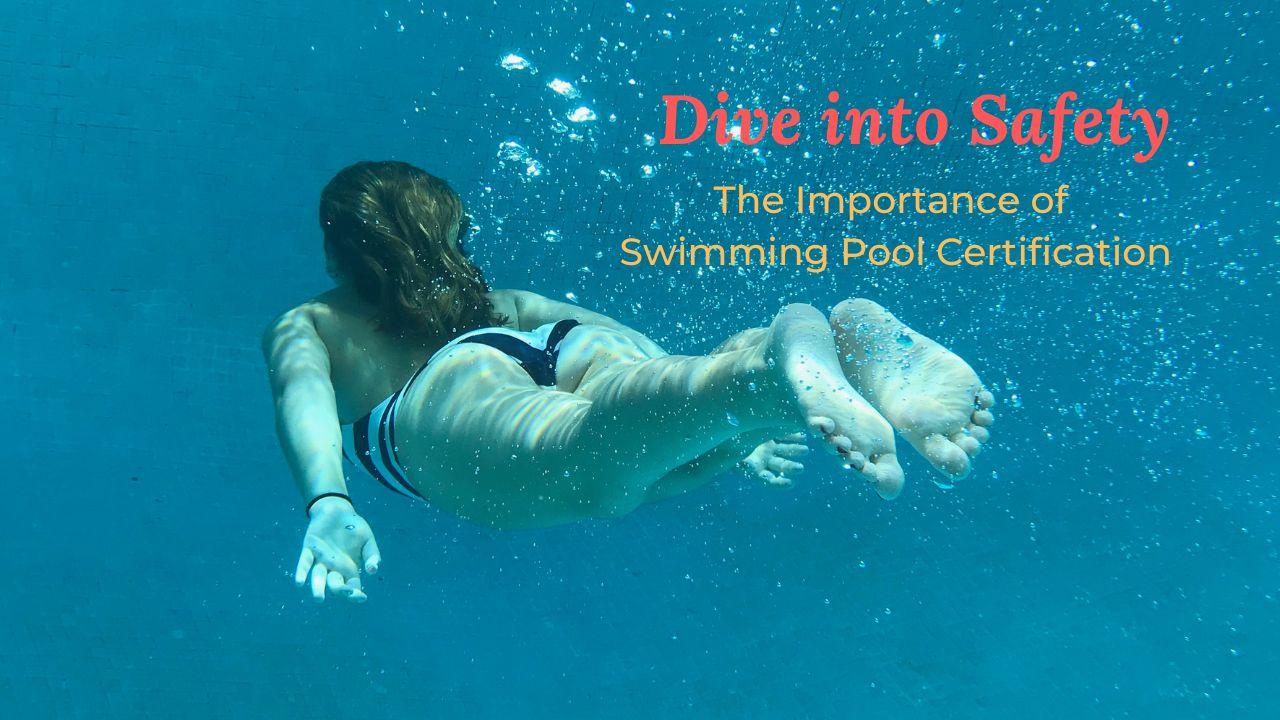When it comes to enjoying the hot summer days or organizing pool parties, swimming pools provide a refreshing and entertaining experience for people of all ages. However, amidst the joy and relaxation, it's crucial to prioritize safety. This is where swimming pool certification plays a vital role. In this article, we will explore the significance of swimming pool certification and why it should never be overlooked.
Ensuring Safety: The Basics of Swimming Pool Certification
What is Swimming Pool Certification?
Swimming pool certification refers to the process of assessing and validating a pool's compliance with safety standards and regulations set by local authorities. These certifications are typically conducted by professional inspectors or certified organizations to ensure that swimming pools meet specific requirements related to construction, maintenance, and safety measures.
The Importance of Swimming Pool Certification
Ensuring Water Quality: Swimming pool certification ensures that the water in the pool is regularly tested and treated, maintaining the highest standards of cleanliness and hygiene. This prevents the spread of harmful bacteria, viruses, and other contaminants, safeguarding the health of swimmers.
Preventing Accidents: Certified swimming pools undergo thorough inspections of their physical structures, including the pool's walls, barriers, and drainage systems. This helps identify potential hazards and rectify them promptly, reducing the risk of accidents such as slips, falls, or entrapment.
Promoting Lifesaving Skills: Certifications often require pool owners or operators to have trained lifeguards or staff members with CPR and first aid certifications present on-site. This enhances the safety of swimmers and enables immediate response and assistance in case of emergencies.
Compliance with Regulations: Swimming pool certification ensures that pool owners or operators comply with local and national regulations. This not only avoids legal issues but also demonstrates a commitment to maintaining a safe and secure environment for swimmers.
Peace of Mind: For pool owners and operators, having a certified swimming pool provides peace of mind, knowing that they have taken the necessary steps to prioritize the safety of their patrons. It also enhances the reputation of the facility, attracting more visitors and building trust within the community.
The Process of Swimming Pool Certification
The certification process may vary depending on the location and jurisdiction, but it generally involves the following steps:
Application: The pool owner or operator submits an application for certification to the relevant authority or certification body.
Inspection: A professional inspector visits the pool site to assess its compliance with safety standards. This includes examining the pool's physical structure, safety features, and maintenance practices.
Testing: Water samples are collected from the pool and tested for chemical balance, bacterial presence, and other quality parameters to ensure it meets the required standards.
Compliance Review: The inspection findings and test results are reviewed, and if the pool meets all the necessary criteria, it is granted certification. Otherwise, the pool owner or operator is provided with a list of required improvements or modifications.
Certification and Renewal: Upon successful completion of the certification process, the pool is issued a certificate valid for a specified period. Pool owners must ensure regular maintenance, periodic inspections, and timely renewal of certification to maintain compliance.
Conclusion
In conclusion, swimming pool certification is of paramount importance for the safety and well-being of swimmers. By adhering to certification standards, pool owners and operators create a secure environment that promotes enjoyable and risk-free swimming experiences. It is a responsibility that should never be taken lightly, as the lives and health of swimmers depend on it. So, dive into safety by prioritizing swimming pool certification and ensuring that every swimmer can enjoy the water with peace of mind.


